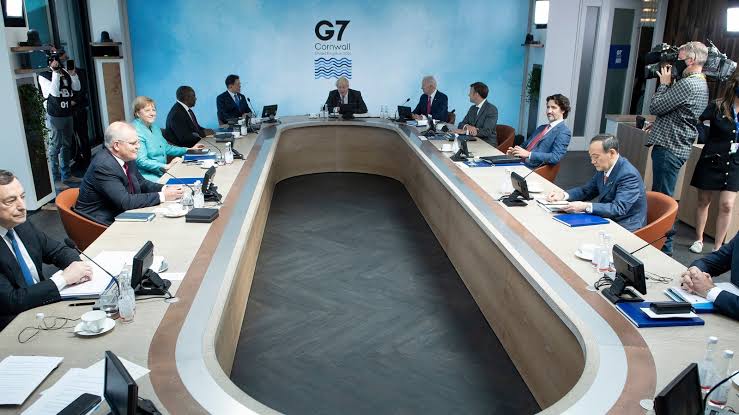Emerging multipolarity will not resemble Cold War

Whether we like it or not, the international order was created during a period of almost absolute power monopoly by the West. For more than 500 years, the states of Western Europe, and later the US, enjoyed virtually unchecked dominance on the world stage across military, economic and cultural realms.
Even if individual countries were their peers in terms of military power like Russia or economic and cultural achievements, like India, no one could fundamentally limit the ability of the West to decide about the order of things on a global scale.
The existing international institutions and organizations were designed under Western ascendancy. Therefore, almost all these institutions are now entering a difficult period of internal restructuring and adjustment to the change of the power balance.
Modern international law was created with the US reserving the right to violate it. Otherwise, they would hardly have agreed to the creation of common legal norms. Now it is a question of how to bring the behavior of the West into line with its obligations and emerged international reality.
500 years of dominance means that the US and Western Europe do not know any other international order. Thus, they have no idea yet how to survive, not to speak about development, in the global environment where the equality of states would be more universal.
Moreover, Western economic systems over the past decades have been built upon the ability to extract the largest benefits from the global economy. America and its allies have never lived in a multipolar world and so they fear it, and are fighting it with the power they possess.
So far, these powers are relatively considerable. The ability of the US to dominate the world is gone and the decisions of the others are proving it. Even 10 to 15 years ago, Russia could not have defended its interests as vigorously as it does nowadays. Many countries around the world now consider India and China as a partner for implementation of their development agendas.
This, of course, is a problem for the West. But it is no less of a problem for others. Especially for states that do not make their security and development agenda conditional on the position in the US-led food chain. China and Russia appear to be among such countries in the first place. But this is a problem for all the international community because of at least two reasons.
First, we still have to preserve a global market economy where everyone can generate benefits for its own population. But since the US does not know yet how to live in a more democratic global system, it has started to destroy the global market itself. The economic war against Russia and the discrimination against other nations, shows that America is ready to wreak havoc on the entire global economy.
Now more and more countries are thinking about pursuing trade in their national currencies. This is certainly good for everyone’s security. So, this process is positive for the internal stability of various countries around the world. But we do not yet know with certainty how this will work in a global and interconnected market.
Second, the long historical experience of power dominance makes the US see any increase in the capabilities of the others as an attempt to establish supremacy. In America, therefore, China’s rise is interpreted as an indicator of its desire to replace the US place as the head of the world order. Sooner or later this will be the case with respect to India also. Thus, American policy is based on the false initial assumption.
India, Russia, China and other countries understand that the new international order will be arranged differently than it has been for the last 500 years. But we don’t know when the US will be able to figure it out, or how long it will take them to acknowledge the objective development of civilization. These years are going to be somewhat dangerous in terms of international security.
The emergence of a new international order does not mean that America should disappear or stop influencing it. It is a large country with a developed and innovative economy. US citizens suffer from poverty – Americans’ general life expectancy has been stagnating for at least 10-15 years already. But it is a large, rich with resources, nuclear-armed nation, and it should certainly remain among the world’s leading powers.
But on the long road to this, the US will have to recognize the inability of one state to rule the whole world. The international order that will emerge in the coming decades will be much more democratic, for objective reasons that are impossible to resist. The multipolar world which is emerging will not resemble the Cold War, or the short period after 1991. The way most medium and even small powers are behaving now shows that even a few poles will not be able to run separate and mutually isolated groups of the states.
The poles of the multipolar world will need to engage in dialogue among them, offering the rest of us alternative solutions to specific development challenges. In addition, the poles of a multipolar world can never be equal in strength and size, but each will be able to offer more to promote development, solve global problems, and ensure security for the rest of the international community.
The question for us now is not whether the US can win its struggle against the multipolar world order. It has already failed simply because it has to fight it. The important question of international politics is how long it will take America to find the right balance between how it see itself and how the rest of us see it.
By Timofei Bordachev




